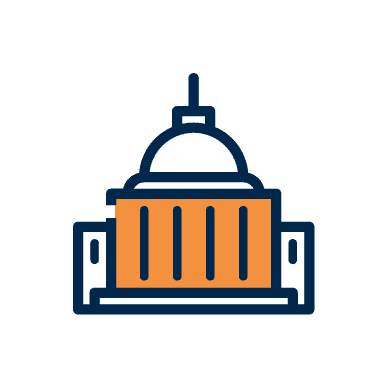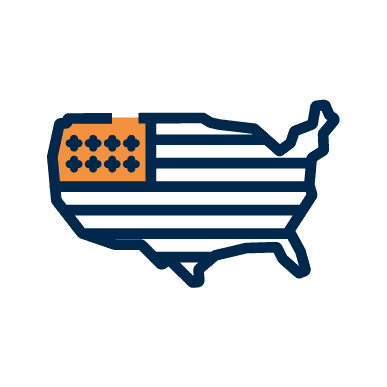With recent events in Afghanistan, the role of the Treasury Department’s Office of Foreign Assets Control (OFAC) in controlling the release of funds held in US financial institutions by foreign countries or terrorist organizations has again made national headlines.
In a recent article published by the Washington Post, it was reported that on August 15, 2021 the United States Treasury Department had frozen Afghan government reserves held in U.S. financial institutions, blocking the Taliban from accessing billions of Afghanistan reserves held overseas. The Afghanistan central bank held $9.4 billion in reserve assets as of April, 2021 according to the International Monetary Fund (IMF), and billions of these reserves are held in US banking institutions.
In a letter date August 17, multiple members of Congress urged Secretary Yellen to also intervene with the IMF to prevent the imminent release of an estimated $450 million IMF allocation to Afghanistan which would have been accessible to the Taliban regime just days after their takeover from the elected Afghan government. As stated in the letter, “The potential of [this] allocation to provide nearly half a billion dollars in unconditional liquidity to a regime with a history of supporting terrorist actions against the United States and her allies is extremely concerning.” The IMF shortly thereafter suspended Afghanistan’s access to these allocated IMF funds, as reported in Reuters, “ due to a lack of clarity over the country’s government” after the Taliban seized control.
The United States did not need any new authority to freeze the reserves, because the Taliban was already facing US sanctions under Executive Order 13224 signed by President Buch after the Sept. 11, 2001, attacks. The Treasury was able to move very quickly to block access to assets thanks to the OFAC mechanisms already in place.
What is OFAC?
As stated on its website, the Office of Foreign Assets Control (“OFAC”) of the US Department of the Treasury administers and enforces economic and trade sanctions based on US foreign policy and national security goals against targeted foreign countries and regimes, terrorists, international narcotics traffickers, those engaged in activities related to the proliferation of weapons of mass destruction, and other threats to the national security, foreign policy or economy of the United States. Through the use of OFAC, the US can impose crippling financial sanctions or employ other means of economic leverage against foreign organizations or individuals involved in narcotics, terrorism, and other activities that threaten national security.
The US has a long history of imposing sanctions against foreign powers whose actions run contrary to American interests. The first government sanctions against a foreign power occurred were imposed by the Secretary of the Treasury during the War of 1812. Since then, the Treasury Department office responsible for managing sanctions has changed several times. OFAC itself was formally created in December 1950, following the entry of China into the Korean War, when President Truman declared a national emergency and blocked all Chinese and North Korean assets subject to U.S. jurisdiction. With the introduction of terrorist and criminal factions around the world, the reach of the Treasury sanctions was extended beyond just foreign governments.
How Does OFAC Enforce These Sanctions?
As part of its enforcement efforts, OFAC publishes a list of individuals and companies owned or controlled by, or acting for or on behalf of, targeted countries. It also lists individuals, groups, and entities, such as terrorists and narcotics traffickers designated under programs that are not country-specific. Collectively, such individuals and companies are called “Specially Designated Nationals” or “SDNs.” Their assets are blocked and U.S. persons are generally prohibited from dealing with them.
Once the Secretary of the Treasury designates an individual or entity as an SDN, OFAC takes action to block their assets in the United States including notification of the blocking order to U.S. financial institutions, directing them to freeze the assets of the SDN.
Where Are the OFAC Designations Published?
Notice of each designation is published in the Federal Register. OFAC also adds the individual or entity to its Specially Designated Nationals List, which is searchable, and posts a notice of this addition on the OFAC website. In addition, anyone can request online alerts from the Treasury when sanction activity occurs. Designations remain in effect until the designation is revoked, or the original Executive Order lapses or is terminated in accordance with federal law.
Do Organizations Need to Monitor the SDN Sanction List?
When an individual or organization appears on the SDN List, that designation has impact across multiple industries. Commodity markets, as well as insurance and financial institutions are strictly prohibited from all business dealings with these sanctioned organizations and individuals. To ensure compliance with federal sanctions, US organizations must frequently conduct OFAC SDN search to identify whether any current or new clients are included on OFAC’s SDN List. While the SDN List is frequently updated, there is no predetermined timetable, but rather names are added or removed as necessary and appropriate. Since there is no predetermined OFAC update schedule, instituting a monthly screening against the Treasury’s Sanction List will help companies avoid business dealings with sanctioned parties. For a more in-depth review of the specific steps that companies should take to protect themselves from doing business with a sanction individual or entity, please review the attached article.
CONCLUSION
New guidance from the Treasury Department’s Office of Foreign Assets Control (OFAC) on the impact of the Taliban’s recent seizure of the Afghan government is anticipated shortly. Other governments, such as the United Kingdom, are considering similar action to effectively choke off Taliban access to Afghani reserves. If not previously understood or appreciated by the Taliban, the recent action of the OFAC will be felt in the upcoming weeks or months as the funds needed to realize their plans for Afghanistan remain beyond their reach absent a lifting of financial sanctions by the US and IMF. While the OFAC often seems to work in relative obscurity compared to other federal offices or divisions, when it flexes its authority, such as in this case, the consequences can be felt quickly across the globe.
Compared to the other federal exclusion lists like the LEIE or SAM.gov, the possibility of a potential contractor, employee or business partner appearing on the OFAC Sanctions List is less likely unless your firm has regular foreign financial dealings. Nonetheless, the consequences of failing to check for sanctions far outweighs the time and cost to regularly screen against the SDN List. Streamline Verify, a company with years of experience in screening for government exclusions, is well-situated to serve the insurance and banking industries by performing the OFAC searches necessary to avoid the pitfalls of hiring or conducting business with a sanctioned party. Streamline Verify’s time-tested cutting edge web application provides foolproof sanction screening of SDNs, to ensure OFAC compliance.




































